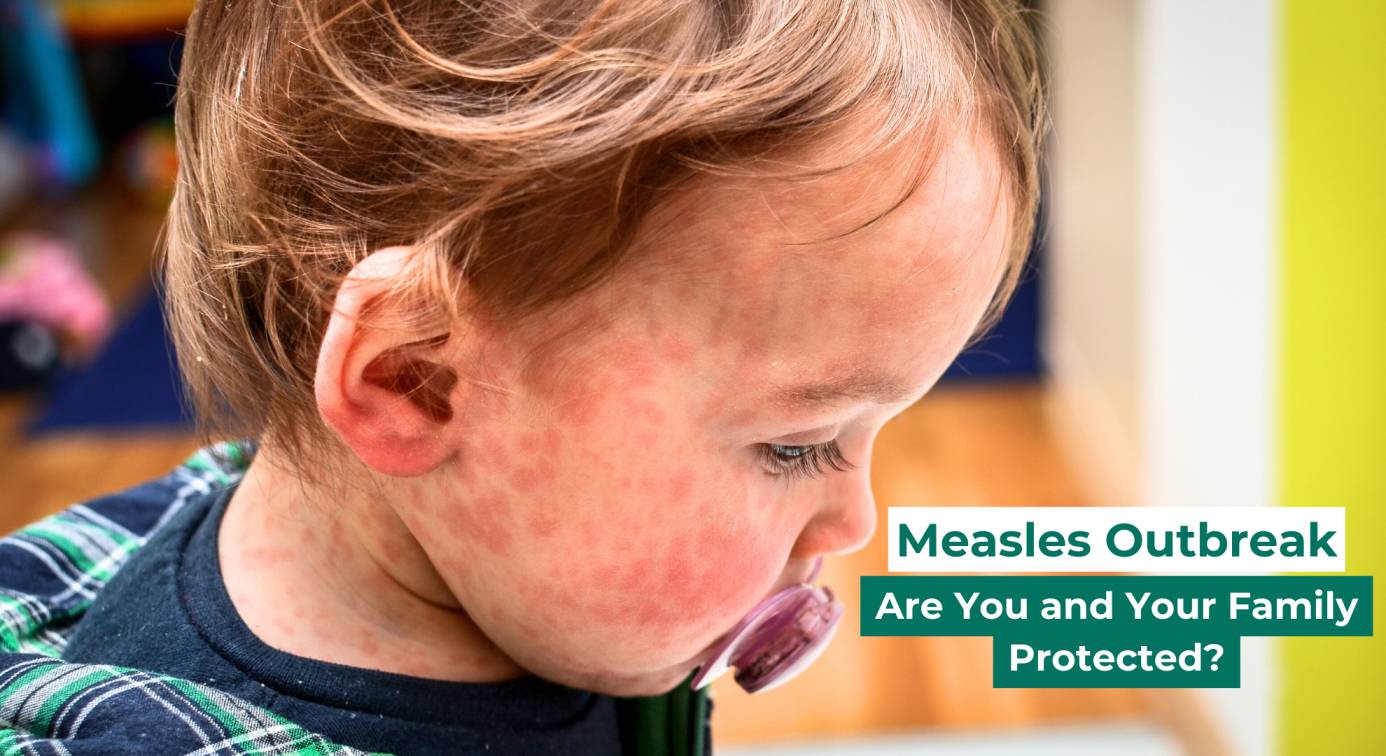
Measles Outbreak: Are You and Your Family Protected?
Measles Outbreak: Don't Let This Disease Make a Comeback
Measles, a highly contagious respiratory illness caused by a virus, might seem like a relic of the past. However, recent outbreaks serve as a stark reminder of its lingering threat. This potentially severe disease not only causes a week of discomfort but can also lead to serious complications, especially for young children and pregnant women. Let’s delve deeper into understanding measles outbreak, its symptoms, how it spreads, and most importantly, how to prevent it.
A Feverish First Act: Early Signs of Measles
The initial stage of measles, lasting about four days, often mimics a common cold. You might experience a high fever, reaching up to 104°F (40°C), accompanied by a persistent cough, runny nose, and watery eyes that are sensitive to light and may appear red and irritated. Feeling generally unwell and lacking energy are also common. This initial phase might lull you into thinking it’s a minor illness, but the next stage reveals the true culprit.
The Revealing Rash: Measles Takes Center Stage
A few days after the initial symptoms, a distinctive red, blotchy rash takes center stage. Starting on the face and hairline, it gradually spreads down the body, reaching the arms, legs, and feet within a few days. Unlike some rashes that may be itchy, the measles rash typically isn’t. However, it can be a cause for concern, as it signals the peak contagiousness of the virus.
Beyond the Rash: Potential Complications of Measles
While most people recover from measles within a week or two, the virus can have serious consequences. Young children and adults with weakened immune systems are at particular risk. Here’s a glimpse into some potential complications:
- Ear infections: These are common in children with measles and can sometimes lead to hearing loss.
- Pneumonia: This infection of the lungs can be life-threatening, especially in young children.
- Encephalitis: This is an inflammation of the brain that can cause seizures, brain damage, and even death. It’s a rare but devastating complication.
- Subacute Sclerosing Panencephalitis (SSPE): This is a rare, fatal brain disease that can develop months or even years after a measles infection. There is no cure for SSPE.
An Airborne Attack: How Measles Spreads
Vaccination: The Measles Outbreak Shield
The good news is that measles is a vaccine-preventable disease. The MMR vaccine, which protects against measles, mumps, and rubella, is a safe and effective way to shield yourself and your loved ones from this potentially debilitating illness.
The MMR vaccine is typically given to children in two doses:
- The first dose is given between 12 and 15 months of age.
- The second dose is given between 4 and 6 years of age.
Pregnant women and adults who haven’t been vaccinated should also consider getting the MMR vaccine to ensure they are protected and prevent the spread of the disease.
Herd Immunity: Protecting Our Communities
Beyond Our Borders: The Global Fight Against Measles Outbreak
Measles outbreak remains a global health concern, with outbreaks occurring in various parts of the world. International travel can contribute to the spread of the virus. Staying up-to-date on your vaccinations and being aware of measles activity in areas you plan to visit are essential steps to protect yourself and prevent the spread of the disease.
Conclusion: Keeping Measles a Distant Memory
Measles is a serious but preventable disease. By understanding the symptoms, how it spreads, and the importance of vaccination, we can work together to keep this disease a relic of the past. Let’s ensure our communities are safe and healthy by promoting vaccination and responsible travel practices. Remember, a little prevention goes a long way in safeguarding ourselves and future generations from the threat of measles.
References:
- Centers for Disease Control and Prevention (CDC): https://www.cdc.gov/measles/index.html
- World Health Organization (WHO): https://www.who.int/health-topics/measles
- NHS (UK National Health Service): https://www.nhs.uk/conditions/measles/
Related posts:
- The Green Prescription: How Lifestyle Choices Can Rewrite Your Health Story
- 6 Simple Tips for Managing and Preventing Obesity
- Understanding Obesity: Causes, Effects, and Solutions
- The Impact of Technology on Childhood Obesity
- Combating Childhood Obesity: Effective Solutions for a Healthier Generation
